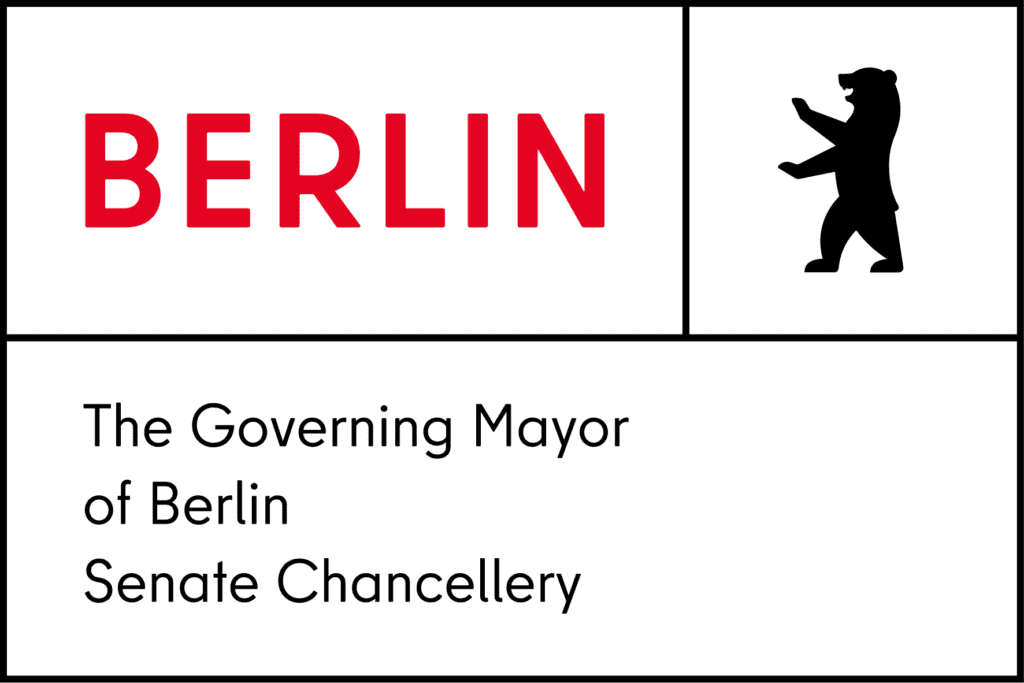Over the past five years, we have experienced a wealth of unforgettable, inspiring and sometimes challenging moments. That’s why it’s time to give the entire CityLAB team the opportunity to have their say! In our latest blog post, we asked our colleagues what makes CityLAB a unique place in Berlin, how our view of digital solutions has evolved over time and which experiences have particularly characterised the last five years. Of course, we also talked about what we would like to see for our LAB in the future. Find out more about what moves us and what visions we have for the coming years.
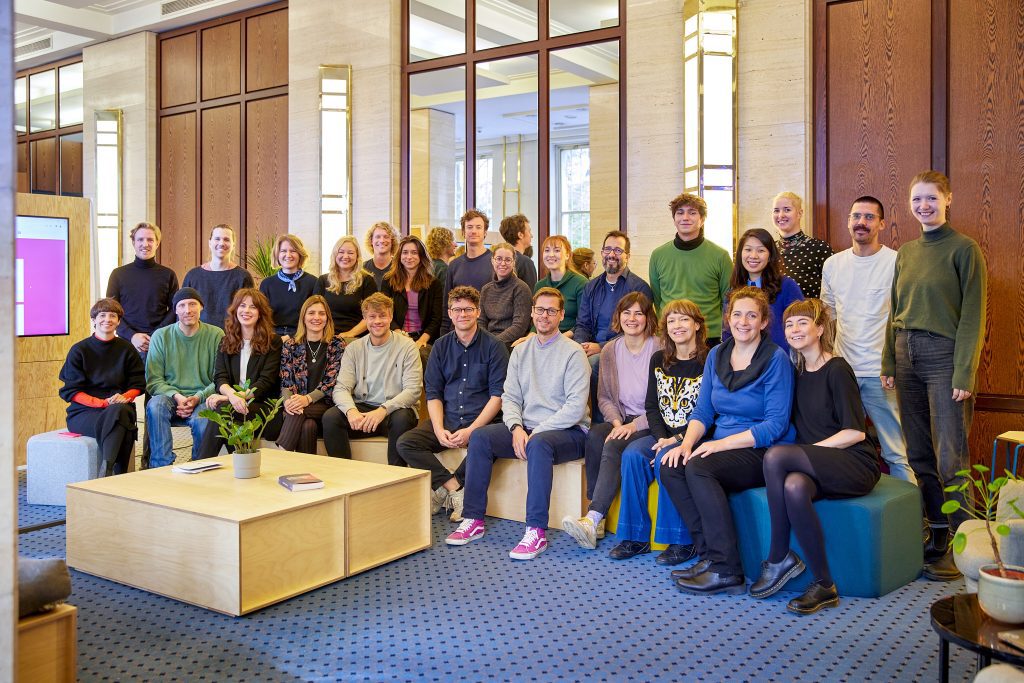
What have been the most formative moments for you in the five-year history of CityLAB?
Myrian Rigal, Product Management: ‘I can think of particular moments when, after a lot of effort and commitment, we were finally able to show our ideas to the world – ok, mostly Berlin. During our LABissages of the last two years, for example, where we invite representatives from civil society, administration, science and business to the Lab to learn about current projects and try out prototypes. Every time, there is a lively exchange with lots of great people who want to make a difference in this city. Another highlight for me was our ‘idea cubes’ – one of our AI exhibits that we used at various locations. I experienced how simple ideas can make it easier for people to access new technologies and demonstrate their potential. The ultimate is, of course, when the final response is: ‘That’s so great, can you come and visit us with it?’
Markus Sperl, Project development / Project management freemove: ‘Not an easy decision at all. Let me give it a try: The Kiezlabor opening in front of the re:publica site on Flutgraben 2023 is certainly one of them for me, as is the CityLAB Sommerkonferenz 2022 on Tempelhof airfield, with this mixture of inspiring content, the impressive location and the band Mouse On Mars in the sunset, and the final adoption of the digital and smart city Gemeinsam Digital: Berlin, which we helped to shape through the participation processes.’
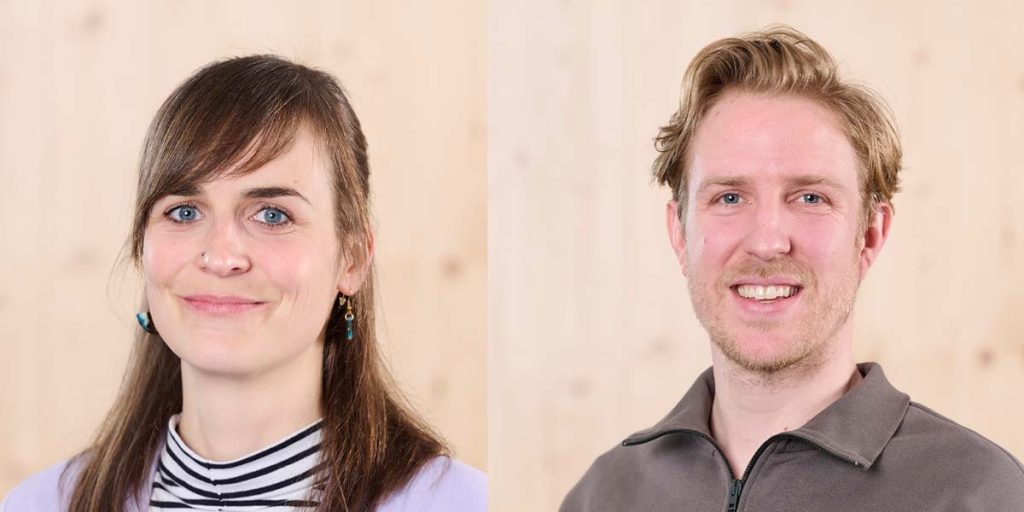
How has your view of innovation and digital solutions for Berlin changed through your work at CityLAB?
Ingo Hinterding, Team Lead Prototyping & Research Projects: ‘I have learnt that digital prototypes help enormously to advance a discourse. A tangible and usable application creates a shared understanding of the problem and the solution. But it is important to work together with the administration to consolidate innovations, which is a major challenge in the digitalisation of Berlin.’
Katja Hermes, Strategic Operations: ‘I have realised that innovation does not necessarily require groundbreaking technological solutions. Rather, the interaction between different players and the will to transform is crucial. Structures and processes also need to be changed in order to make innovation possible in the first place. Digital solutions can make processes more efficient and bring them closer to citizens, but real progress often only comes about when we combine different expertise and perspectives and take action.’
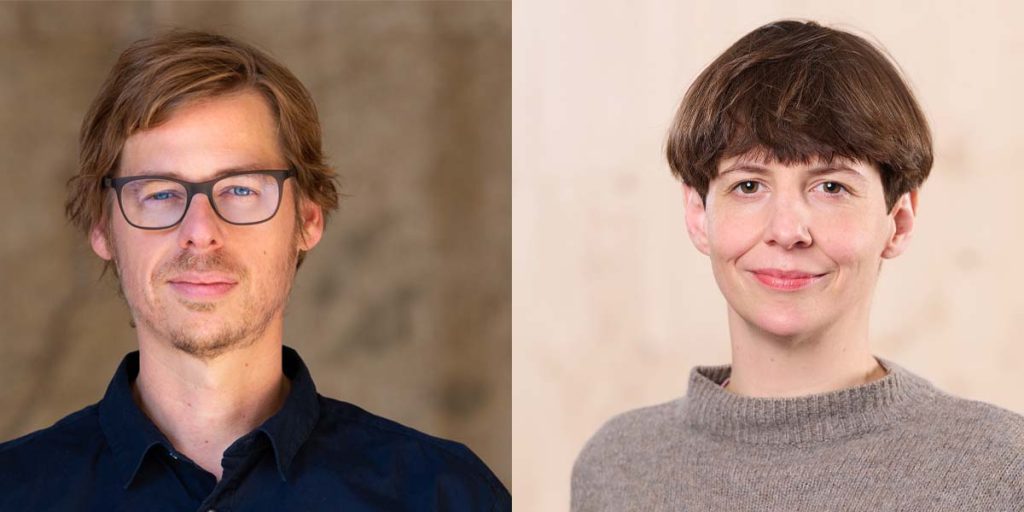
Which CityLAB projects, prototypes or events have taught you the most and why?
Raphael Arce, Frontend Developer: ‘The “Anmelde – Check” prototype was the first time I had dealt very specifically and intensively with accessibility on the web. How do you enable use exclusively with the keyboard? How would a screen reader read out the website? Is everything easy to understand, even in different languages? Answering all these questions was a technical and design challenge that resulted in an immense gain in knowledge.’
Sarah Lebkücher, Event & Content Manager: ‘For me personally, CityLAB has produced a variety of inspiring events that have taught me something in different ways. However, two of my favourites are the CityLAB Sommerkonferenz and the LABissage. The summer conference aims to provide a platform for an interdisciplinary exchange on current topics such as digitalisation and administrative innovation and create an inspiring environment through a diverse programme and a cultural evening. The LABissage is about putting the CityLAB exhibition centre stage and making our working methods, methods and projects accessible and understandable for everyone. Planning such large-scale events is always a new challenge that I am very happy to take on!’
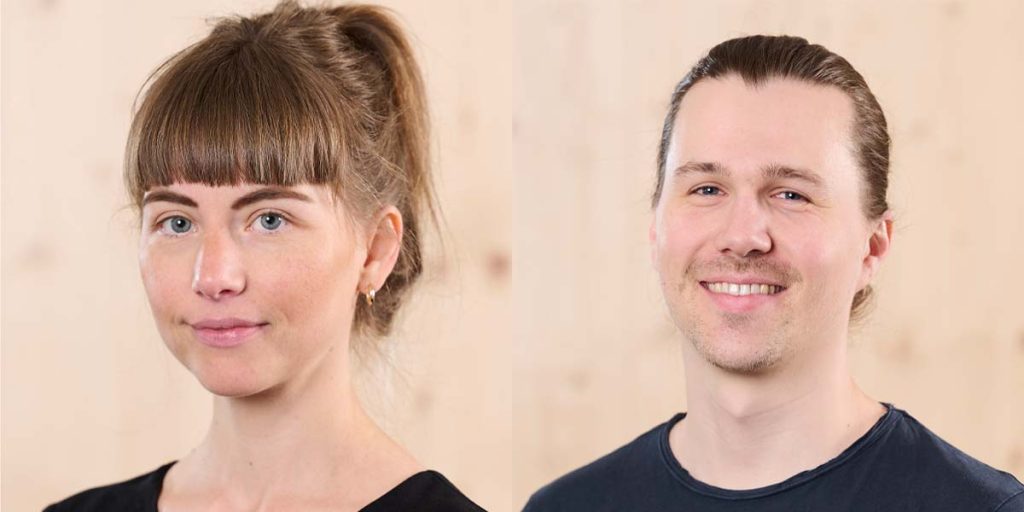
Anna Meide, Data visualisation & concept development at ODIS: ‘I learnt a lot about Berlin’s energy policy at the Berliner EnergieCheckpoint cooperation project between CityLAB and the Open Data Informationsstelle (ODIS). By selecting public buildings on an interactive map, you can view both energy and heat consumption. There is also data on refurbishment projects and potential energy savings. With the help of a comparison with average single-family homes, we also create a category that helps to get a feel for sizes – for example, the Red Town Hall consumes 193 times as much electricity as a single-family home with five people. I’m also a big fan of the CityLAB Summer School, which has been held annually since 2019. In this format, students and relevant Berlin stakeholders come together at our lab to work on Berlin topics for one to two weeks and play through prototype solutions. I really enjoy the energy of this short and intensive sprint format. That’s how I got to know CityLAB myself.’
Johannes Refle, Working student: ‘All of our projects and prototypes are aimed directly at all Berliners. Be it Gieß den Kiez, the Erfrischungskarte or Kiezlabor. Seeing how we can get people excited about a digital and open city is always motivating. And at the same time shows how beautifully diverse Berlin is.’
Pia Gralki, Team lead communication: ‘I find it impressive how the use of open data and its visualisation can help us to rediscover cities like Berlin and interact with them in a different way – for example, by using Gieß den Kiez to get to know the tree on your doorstep via its age and water requirements or to gain insights into political projects via our new AI tool Parla, for example.’
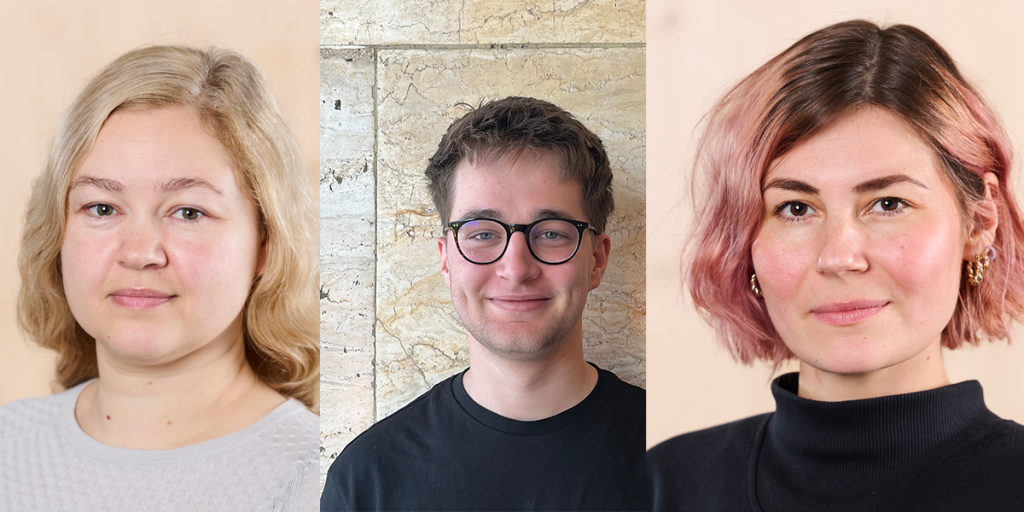
What makes the CityLAB a special place in the city of Berlin?
Jenny Huang, Personal referent to the director: ‘Definitely the team! There are few places in Berlin where you can meet so many young and motivated colleagues who approach their work every day with a lot of humour, expertise and passion and always put a smile on the faces of CityLAB visitors.’
Niklas Kossow, Team Lead Transformation Stadt: ‘The CityLAB is a place of collaboration. Our team is a colourful mix, brings together different perspectives and disciplines and is united by its work on the digitalisation of Berlin. The CityLAB offers a space where very different stakeholders can come together: People from civil society, scientists, representatives of Berlin’s business community and, of course, motivated employees from all levels of Berlin’s administration. It always motivates me to see how we bring these different people together at CityLAB and help to create innovative ideas together. An innovation lab in the historic premises of Tempelhof Airport – a lot of new things are created in this environment, which makes CityLAB a special place.’
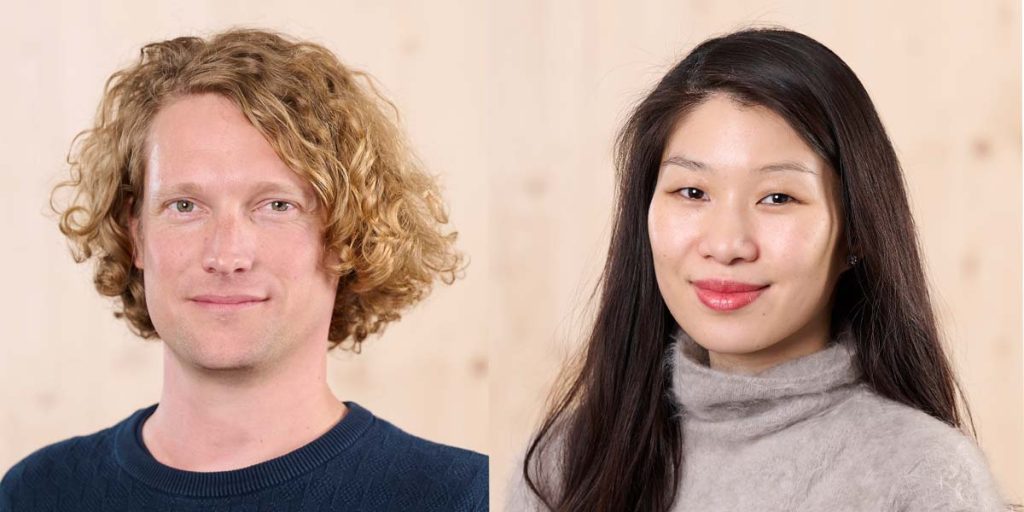
What highlights did you have in terms of working with the administration? What did you learn from it?
Edmundo Galindo, Product-& UX-Designer: ‘Over the past five years, I have experienced many highlights in our collaboration with the administration and learnt important lessons. We started with pioneering work to teach concepts such as ‘service design’ and ‘user experience’. Through step-by-step workshops, we made impressive progress, accompanied by enthusiastic feedback. The administration adopted our methods, developed innovative solutions and integrated them into their way of working, such as at the House of Statistics, which developed a dashboard for monitoring. Our partners in the Training Citizens’ Office contributed their own ideas and adapted our way of working. Over the five years, I have learnt an incredible amount from our project partners. I listen carefully and give them the freedom to experiment, discuss and design in the workshops. They constantly inspire me and give me new ideas that I incorporate into the development of project ideas. Even if our progress may sometimes seem small, it is often big steps for the administration. Change requires a lot of commitment, enthusiasm, openness, curiosity and also a certain amount of craziness in order to make things happen together. I carry these realisations with me every day in my work😊!’
Lisa Schmechel, Project Manager Administrative Innovation: ‘My highlight so far has been working with the Friedrichshain-Kreuzberg training centre. The management is driving forward the topics of digitalisation and transformation in a very forward-looking way. It’s great to see how employees’ ideas can be tested and implemented to sustainably improve services for citizens.’
Nadine Riede, Teamlead Events & Content: ‘My highlight is to experience time and again, and also to receive feedback, that our summer conference creates lasting added value for our participants from the administration – be it through hands-on knowledge for everyday work or through the many discussions on site and new contacts that are made.’
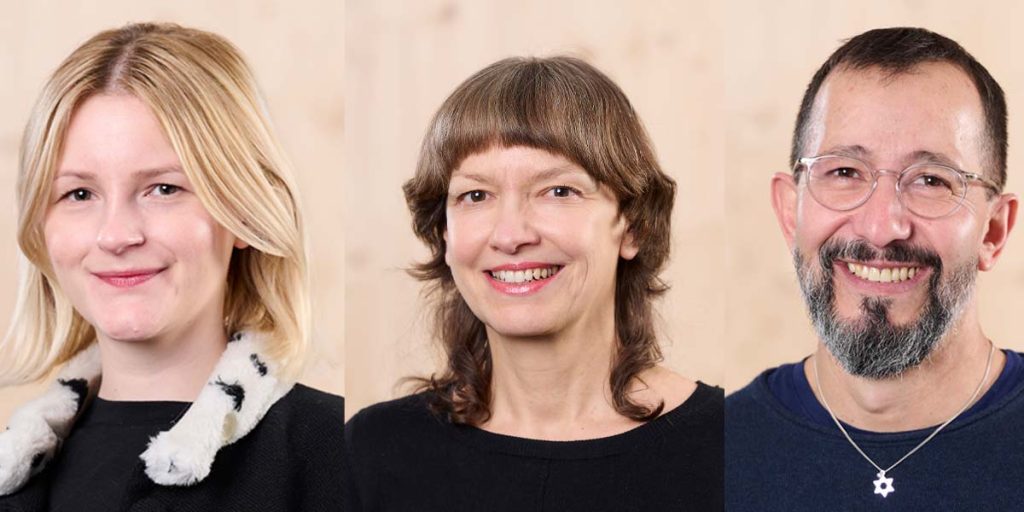
How would you complete the sentence: ‘For me, CityLAB is a place where….’?
Deborah Paluch, Service Design: ‘… the collaboration is a lot of fun because people come together who are intrinsically motivated to shape visions for a sustainable Berlin in an agile and user-centred way.’
Anna Eschenbacher, Creative Technologist: ‘…you are warmly welcomed and quickly feel integrated.’
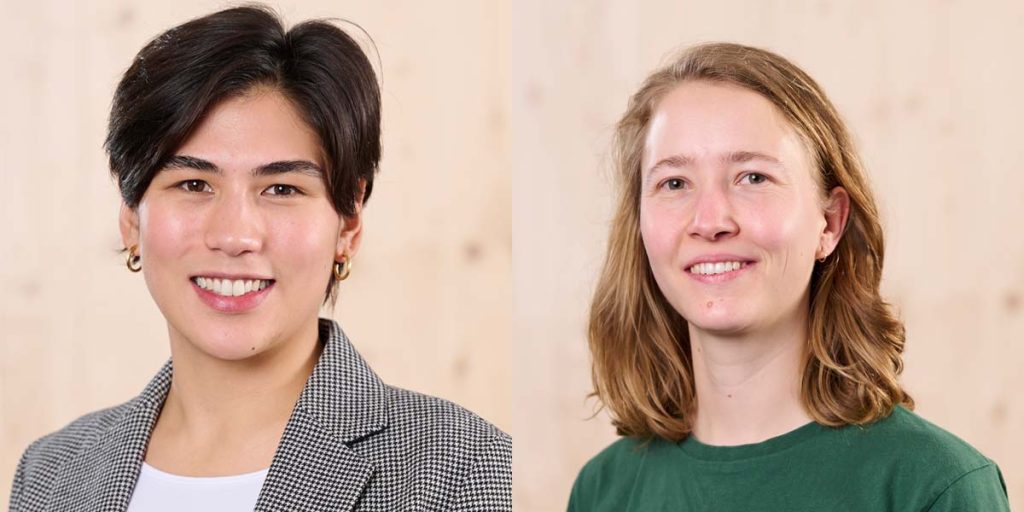
Pauline Boos, Project Manager Administration: ‘…any idea, no matter by whom, no matter how absurd it seems, may be expressed.’
Nora Eilers, Communications Manager: ‘… no matter who I meet first thing in the morning at the coffee machine, I start the day with a smile.’
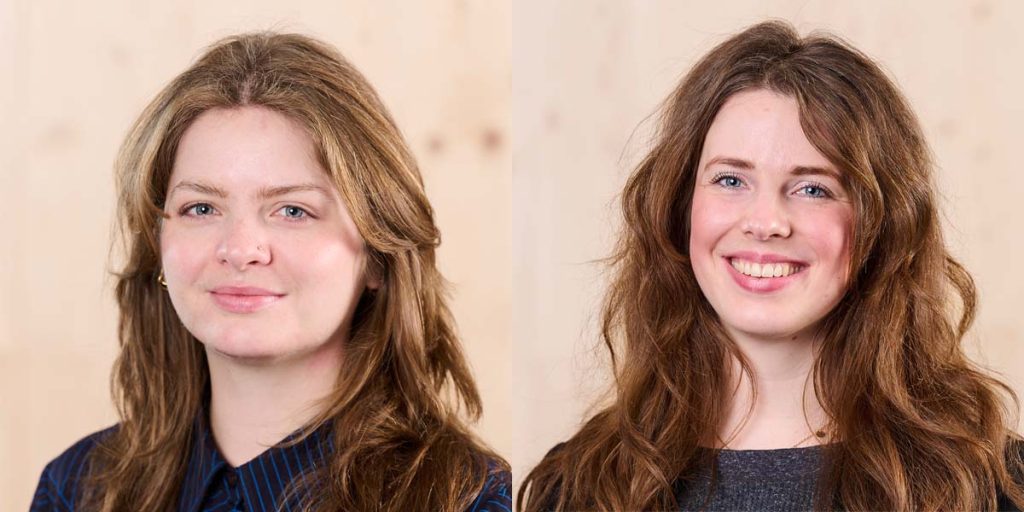
In five years, CityLAB has often been on tour (last year especially through the Kiezlabor) to get into conversation with citizens! How do you get off to a good start and explain our work to people quickly and effectively?
Julian Zefferer, Conceptual & Urban Space Development: ‘The “Bürgeramt – Heute ohne Termin” (Citizens“ Registration Office – no appointment today) signs that we were able to put up during the Kiezlabor’s collaborations with the fantastic training citizens” registration offices in Friedrichshain-Kreuzberg and Schöneberg worked better than any conversation starter. Whether on Tempelhofer Feld or in the pedestrian zone in Kreuzberg’s Graefekiez neighbourhood, the opportunity to spontaneously apply for a new ID card on the way home not only puts people in a good mood, but is also a very concrete example of CityLAB’s work on digital and innovative administration.’
Henriette Närger; Product Owner Gieß den Kiez: ‘The start of the dialogue is almost always individualised according to the location, topic focus and age of the person. Ideally, it should be low-threshold. For example, the offer of a cool drink in the shade on Tempelhofer Feld can lead to the mapping of urban heat islands and cool retreats and thus to the Berlin Refreshment Map (ODIS). Or lingering on our street furniture in Marzahn-Hellersdorf as a discussion starter on how the square could be redesigned, what digital participation formats already exist in the city and to what extent the ideas could be visualised directly – via AI directly on one of our screens on site. This is a great way for people to come together and get information, exchange ideas and network at the same time.’
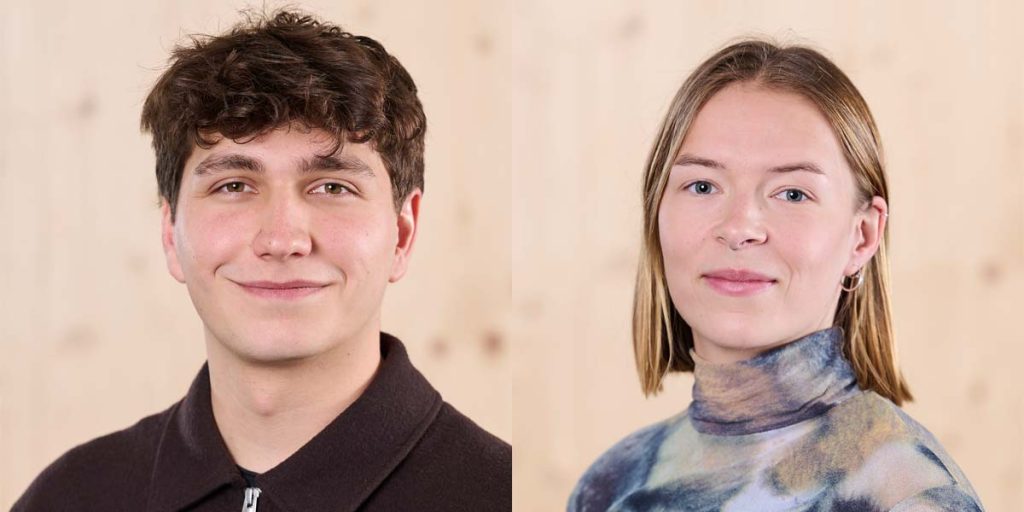
Carolin Clausnitzer, Public Engagement Manager: ‘The best way is through a personal point of contact. In the Gräfekiez neighbourhood, I got talking to a resident about noise pollution in the area. Although there is a noise level meter, it only registers the peaks and not the ongoing pollution. This quickly led us to our ‘Offene Werkstatt’ and ‘CityLAB Summer School’ events, where you could take part in the Kiezlabor. The participants developed DIY solutions on the topic, which were implemented using digital hardware, among other things. Learning by doing!’
Anastasia Jerdeva, Graphic designer: ‘Most of the time, you don’t have to do much to start the conversation because people are very curious about what’s new in their neighbourhood. As CityLAB has very diverse projects and focal points, there is a topic that is interesting and relevant for everyone. I find it easiest to explain the work of CityLAB using the prototypes that have been put into practice, such as Gieß den Kiez. Here it becomes particularly clear how digitisation for the common good can generate benefits for everyone.’
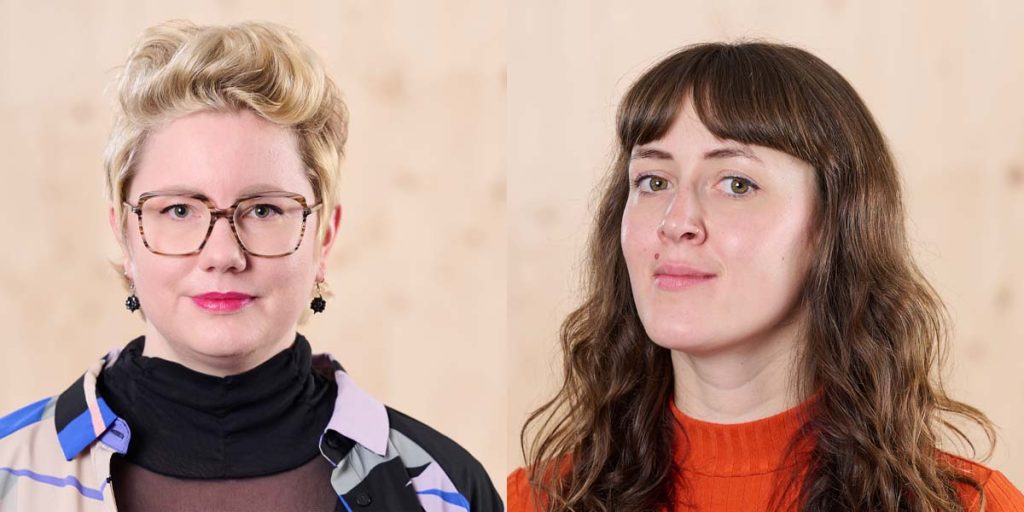
Five years of CityLAB – what are your wishes for the next five years?
Anne Katzmann, Finance Project Manager ‘My wish: We have accompanied Berlin and its citizens on the path to a digital, user-centred and sustainable future. As an independent, non-profit organisation, we have strengthened our role at the interface between civil society, administration, science and business. We are an established player in Berlin’s digital landscape – agile, strong in implementation, focussed and authentic.’
Klemens Maget, Knowledge transfer & communication at ODIS: ‘When I look five years into the future, CityLAB is celebrating its first anniversary with the entire urban community. CityLAB can proudly look back on 10 years of making the city more liveable, the administration more innovative and new technologies more tangible.’
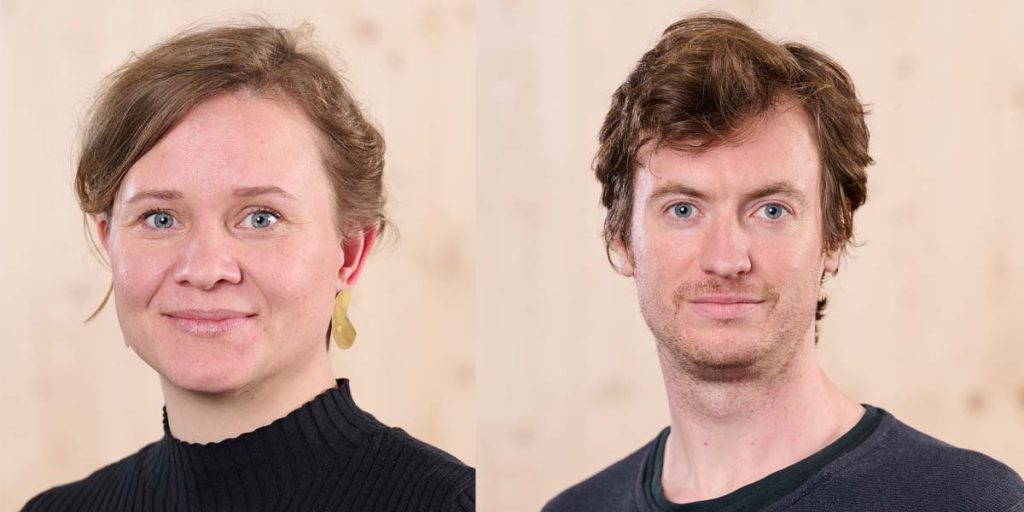
If you immediately feel like meeting the team in person and finding out more about our work, then make a note in your diary of the opening of the Kiezlabor at the end of May and the Sommerkonferenz at the end of June! We cordially invite you to meet us there, explore our projects and our work – and start the next (at least) five years at CityLAB together with us! We look forward to meeting you in person and breaking new ground with you!
